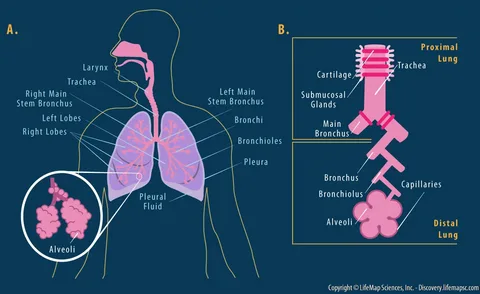Pulmonary function tests are noninvasive lung tests that doctors use to see how well your lungs work. Your doctor may recommend Bridgewater pulmonary function test to diagnose lung diseases, including allergies, respiratory infections, restrictive airway problems, and chronic lung conditions such as asthma and emphysema. There are different types of pulmonary function tests, and the one your doctor chooses depends on what they need to find out. These tests include:
Spirometry
Spirometry is one of the most commonly performed pulmonary function tests. It uses a spirometer, a device with a mouthpiece hooked to an electronic machine. Healthcare providers use this test to measure how much air you can breathe in and out and how fast you can empty air. Your doctor may recommend this test to diagnose breathing problems like asthma and COPD.
This test can help the doctor learn how well the medicine works for patients with asthma.
During this test, you will inhale as much air as you can. Then, you will quickly blow out as much air as possible through a tube connected to a spirometer. The test measures the amount of air you can exhale in one second; your score shows your breathing problem’s severity.
Doctors also use this test to measure the air one can breathe out after inhaling to determine if their breathing is normal.
Lung diffusion capacity
A lung diffusion capacity test measures the movement of oxygen from your lungs to your blood. It is similar to spirometry, whereby you breathe into a tube attached to a machine. The test helps your doctor diagnose a disease of the blood vessels between your heart and lungs. It can also reveal the extent of damage caused by a condition like emphysema.
Body plethysmography
This test measures the air in your lungs when inhaling and checks the amount of air remaining in your lungs after breathing. You may require plethysmography for various reasons. For example:
- The test can help establish if you have a lung disease that limits space in your lungs. Healthcare providers refer to this as a restrictive disease.
- You may also need this test for your doctor to see how a disease like asthma affects your lungs. The results enable your doctor to know if you need treatment changes.
- It shows if you have narrowed airways for your doctor to decide whether you need lung medications or bronchodilators.
- This test also helps your doctor determine how well you’d do if you needed surgery.
The test is painless and fast and only takes about 15 minutes. For this test, you will sit in a clear plastic box, wear a nose clip and breathe through your mouth via a unique mouthpiece.
Bronchial provocation test
This test can help diagnose asthma and determine how severe it is. You inhale a medication that narrows your airways during the test, then take a spirometry test. You will repeat this several times; the readings help your doctor know how much your airways narrow during an asthma attack. To learn how you may benefit from a pulmonary function test, consult your doctor at Respacare.








